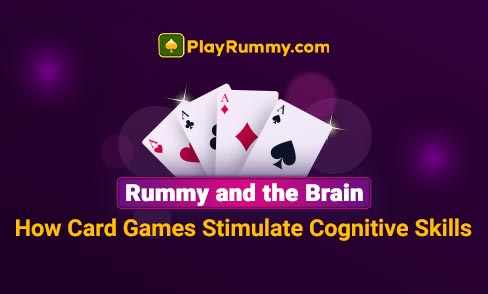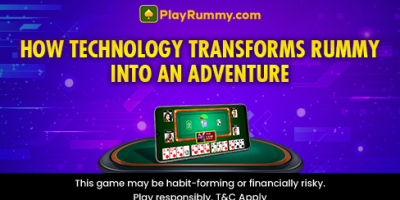Be it Indian card games or other ones they’ve all been an integral part of human culture for centuries. They entertain, challenge, and provide a platform for social interaction. Beyond their recreational value, card games also offer a myriad of cognitive benefits. In this comprehensive exploration, we will delve into how card games stimulate cognitive skills, from memory enhancement to strategic thinking. We’ll delve into card games, their cognitive advantages, and discuss why they are an excellent choice for cognitive exercise.
The Cognitive Benefits of Card Games
Card game online or offline, whether played with a standard deck of cards or specialized decks for games like bridge, poker, or Indian rummy card game, engage players in a range of mental activities. These activities stimulate cognitive skills, including memory, strategic thinking, problem-solving, and concentration. Let’s take a closer look at how card games benefit different cognitive domains:
Memory Enhancement: Memory is a fundamental cognitive function, and card games significantly contribute to its improvement. Players must remember card values, their positions, and past moves. This sharpens both short-term and long-term memory. Indian rummy card game, for example, require players to remember which cards have been picked and discarded by opponents to use that information strategically. This ability to recall which cards are still in play and make informed decisions based on that information is crucial for success. This skill extends to daily life, helping individuals remember lists, appointments, and details.
Strategic Thinking: Card games are essentially games of strategy. Whether it’s planning your moves in a game of Solitaire or devising complex tactics in Bridge, strategic thinking is crucial. Players must anticipate opponents’ moves, plan their own strategies, and adapt to evolving game dynamics. This sharpens problem-solving skills and encourages creative thinking, essential for addressing real-life challenges.
Decision-Making Skills: Effective decision-making is vital in whether you play any card game online or offline. Players must weigh their options, assess the value of their cards, and make choices that maximise their chances of winning. For instance, every move in playing rummy involves decision-making. Players must assess the value of their cards, determine which cards to keep or discard, and choose the right time to declare their hand. This skill transfers well to real-world decision-making, helping individuals make informed choices in various situations.
Pattern Recognition: Many card games require players to recognise patterns in the cards. For instance, in Indian rummy card game, players must form sets or runs, identifying specific sequences or combinations. This sharpens pattern recognition abilities, which are essential for tasks like problem-solving, language acquisition, and even mathematical reasoning.
Mathematical Aptitude: Mathematics is intrinsic to card games. Players often need to perform calculations mentally, such as counting points, calculating odds, or determining probabilities. A game like Indian rummy involves mathematical calculations, particularly when evaluating the point value of cards and determining the game’s outcome. Players must perform mental calculations accurately, contributing to mathematical aptitude development. These mathematical exercises enhance numerical aptitude and can have practical applications in daily life.
Concentration and Focus: Be it Indian card games or games like poker they all demand high levels of concentration and focus. Players must pay attention to every move, analyse opponents’ strategies, and make precise decisions. This strengthens attention span and the ability to concentrate on tasks, a valuable skill in any profession.
Card game online or offline both have entertained and stimulated minds for centuries, and their cognitive benefits continue to be appreciated in the modern world. Whether you’re playing bridge, poker, cash rummy, or any other card game, you’re engaging your mind in a multifaceted cognitive workout. Card games enhance memory, strategic thinking, decision-making, pattern recognition, mathematical aptitude, concentration, and emotional control. They are not only enjoyable pastimes but also tools for cognitive development that can positively impact various aspects of life.
So, the next time you pick up a deck of cards or join an online card game, remember that you’re not just playing for fun; you’re also stimulating your cognitive skills and giving your brain the exercise it deserves. Whether you’re aiming to become a better bridge player, master the psychological nuances of poker, or enjoy a friendly game of rummy on any platform that you feel is the best rummy app or bridge or poker platform, you’re investing in the health and agility of your mind. Card games are not just a source of entertainment; they are a gateway to a sharper, more agile, and more resilient cognitive self.









